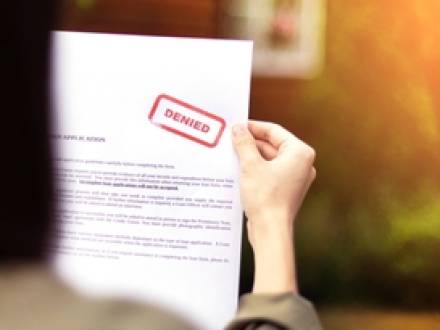Recent Blog Posts
What Are My Rights If I Am Put on Light Duty After a Work Injury in California?
 After a work injury in California, your doctor may say that you can go back to work with certain limits. This means you can do some work, but not everything you did before you were hurt. You are supposed to be able to recover while staying on the job. If this happens, you have rights under California workers’ compensation laws. Our Morgan Hill, CA workers’ compensation lawyers can explain those rights.
After a work injury in California, your doctor may say that you can go back to work with certain limits. This means you can do some work, but not everything you did before you were hurt. You are supposed to be able to recover while staying on the job. If this happens, you have rights under California workers’ compensation laws. Our Morgan Hill, CA workers’ compensation lawyers can explain those rights.
What Does "Light Duty" Mean Under California Workers’ Compensation Laws?
Light duty refers to when your employer gives you work that matches your medical restrictions after an injury. For example, if you have a shoulder injury, your employer might let you do computer work instead of lifting boxes.
Under the Fair Employment and Housing Act (FEHA), employers must make reasonable adjustments to help injured employees keep working. That might mean changing your job duties or schedule. If your employer cannot give you work that meets your doctor’s limits, you may qualify for temporary disability payments under California Labor Code § 4654. These payments help replace part of your weekly wages while you recover.
Can I Get Workers’ Comp for a Shoulder Injury in California?
 A shoulder injury can happen during the course of any type of work. No matter what your job is, shoulder pain can make it difficult to work or handle daily activities. California’s workers’ compensation system is designed to help employees who get hurt while working. If your shoulder injury happened at work or was caused by your job duties, you may qualify for benefits. Our San Benito County, CA workers’ compensation lawyers can help. We will walk you through filing a claim and handle the liable insurance company for you.
A shoulder injury can happen during the course of any type of work. No matter what your job is, shoulder pain can make it difficult to work or handle daily activities. California’s workers’ compensation system is designed to help employees who get hurt while working. If your shoulder injury happened at work or was caused by your job duties, you may qualify for benefits. Our San Benito County, CA workers’ compensation lawyers can help. We will walk you through filing a claim and handle the liable insurance company for you.
Common Types of Work-Related Shoulder Injuries
Shoulder injuries are common in jobs that require lifting, reaching, or repetitive motion. Construction workers, healthcare employees, warehouse staff, and even office workers can all be affected. Some injuries happen suddenly, like when there is a fall or accident. Others develop slowly over time because of repeated strain.
Can I Get a Lump Sum Settlement for Workers’ Comp in California?
 You can get a lump sum settlement for a workers’ compensation claim in California. However, you will not automatically receive it. Whether this is the right choice depends on your medical needs, financial situation, and the details of your injury. Our experienced Gilroy, CA workers’ compensation lawyers can help you understand whether a lump sum settlement is the best option for you.
You can get a lump sum settlement for a workers’ compensation claim in California. However, you will not automatically receive it. Whether this is the right choice depends on your medical needs, financial situation, and the details of your injury. Our experienced Gilroy, CA workers’ compensation lawyers can help you understand whether a lump sum settlement is the best option for you.
How Does a Lump Sum Settlement Work for Workers’ Compensation?
In California, a lump sum settlement is called a Compromise and Release. This type of agreement closes your case in exchange for one payment from the insurance company. Once it is approved by a workers’ compensation judge, you no longer receive weekly disability checks or medical care through the claim. Instead, you get the full amount in a single payment.
Do I Lose Benefits if I Lose My Job While on Workers’ Comp in California?
 You do not automatically lose benefits if you are fired while receiving workers’ compensation in California. The law also protects workers from retaliation, ensuring that you cannot be fired just because you are on workers’ comp. However, employers and insurance companies will sometimes act in bad faith. The first step in securing your benefits and protecting your rights is to talk to a Hollister, CA workers’ compensation lawyer who can explain your options.
You do not automatically lose benefits if you are fired while receiving workers’ compensation in California. The law also protects workers from retaliation, ensuring that you cannot be fired just because you are on workers’ comp. However, employers and insurance companies will sometimes act in bad faith. The first step in securing your benefits and protecting your rights is to talk to a Hollister, CA workers’ compensation lawyer who can explain your options.
Will I Still Get Workers’ Compensation Benefits if I Get Fired in California?
Most of the time, your workers’ compensation benefits will continue even if you lose your job. If your injury happened while you were working, you are entitled to workers’ compensation benefits under Cal. Lab. Code § 3600, no matter what happens with your employment later. This means your employer and their insurance company must keep paying for your medical care and lost wages as long as your claim is approved.
What Medical Expenses Are Covered by California Workers’ Compensation?
 Often, a main concern for someone injured on the job is how they will cover their medical expenses. California workers’ compensation laws exist to ensure that you have access to the treatment you need without having to cover costs out of pocket. However, this raises several questions for workers who need to make sure they get the medical care they need to recover.
Often, a main concern for someone injured on the job is how they will cover their medical expenses. California workers’ compensation laws exist to ensure that you have access to the treatment you need without having to cover costs out of pocket. However, this raises several questions for workers who need to make sure they get the medical care they need to recover.
Are all medical costs included? How does ongoing treatment work? Who chooses your care team? With guidance from experienced Santa Clara County, CA workers’ compensation lawyers, you will have a clear path to the compensation you need while you recover.
Medical Expenses Covered Through a Workers’ Compensation Claim
California law requires employers to provide medical care for workers who are injured on the job. Under California Labor Code § 4600, employers must furnish treatment that is reasonably required to cure or relieve the effects of a workplace injury. Some medical expenses that may be covered include:
How the 4850 Benefits Program Helps Injured Police Officers in California
 In August 2025, a Hanford Police Department motorcycle officer was airlifted to the hospital after being seriously hurt in a traffic crash while responding to a call. Though he is expected to recover, his injuries left him unable to work. In situations like this, California’s 4850 benefits program offers more to injured police officers than standard workers’ compensation payments.
In August 2025, a Hanford Police Department motorcycle officer was airlifted to the hospital after being seriously hurt in a traffic crash while responding to a call. Though he is expected to recover, his injuries left him unable to work. In situations like this, California’s 4850 benefits program offers more to injured police officers than standard workers’ compensation payments.
One of the most important of these benefits helps ensure financial stability during recovery. If you are a law enforcement officer hurt while on duty, our San Benito County, CA workers’ compensation lawyers can help you understand these benefits and will work with you to ensure you get the support you need.
Building a Strong Workers’ Compensation Claim for Hearing Loss in CA
 Hearing loss can creep up slowly or strike suddenly after a loud incident at work. Many California employees — especially those in construction, manufacturing, and other noisy industries — suffer from work-related hearing impairment.
Hearing loss can creep up slowly or strike suddenly after a loud incident at work. Many California employees — especially those in construction, manufacturing, and other noisy industries — suffer from work-related hearing impairment.
Workers’ compensation benefits are designed to cover medical treatment and wage loss if your job caused or worsened your condition. By understanding how these claims work, you can take the right steps to protect your health and future. An experienced Gilroy, CA workers’ compensation attorney can guide you through the claims process to ensure you get the care and financial help you need.
Common Workplace Causes of Hearing Loss in California
Noise-induced hearing loss is one of the most common occupational illnesses. Repeated exposure to machinery, power tools, or heavy equipment can damage the delicate structures of the inner ear. Under California Labor Code § 6400, California’s labor regulations require employers to implement safety measures, including hearing protection, when noise levels exceed certain thresholds.
How Do You Appeal a Denied California Workers’ Compensation Claim?
 If you were hurt on the job and your workers’ compensation claim was denied, you may feel frustrated and unsure of what to do next. Thankfully, California law provides clear steps for challenging the denial and fighting for the benefits you need. With the right approach and the help of a Hollister, CA workers’ compensation attorney, you can appeal the decision and keep your case moving forward.
If you were hurt on the job and your workers’ compensation claim was denied, you may feel frustrated and unsure of what to do next. Thankfully, California law provides clear steps for challenging the denial and fighting for the benefits you need. With the right approach and the help of a Hollister, CA workers’ compensation attorney, you can appeal the decision and keep your case moving forward.
Understanding Why Your Workers’ Comp Claim Was Denied
Insurance companies deny claims for many reasons, some valid and others questionable. A denial might happen if your employer argues that your injury was not work-related or if your medical records do not support your version of events. Sometimes, a claim is rejected simply because the paperwork was incomplete or you missed a deadline.
California law also sets strict requirements for filing claims. For example, under Labor Code § 5401, an injured worker must notify their employer about their injury using a claim form, known as a DWC-1. If this notice is late or missing, it can give the insurance company grounds for denying benefits.
What Is California’s Return-to-Work Supplement Program?
 In addition to workers’ compensation benefits, California offers the Return-to-Work Supplement Program (RTWSP), which provides a single $5,000 payment to certain injured workers after a job-related injury. The goal is to help close income gaps when permanent limits make it hard to return to the same work. A Santa Clara County, CA workers' compensation attorney can help you confirm eligibility, gather the right documents, and submit a timely, complete application.
In addition to workers’ compensation benefits, California offers the Return-to-Work Supplement Program (RTWSP), which provides a single $5,000 payment to certain injured workers after a job-related injury. The goal is to help close income gaps when permanent limits make it hard to return to the same work. A Santa Clara County, CA workers' compensation attorney can help you confirm eligibility, gather the right documents, and submit a timely, complete application.
Understanding the Return-to-Work Supplement Program in California
The RTWSP works alongside your regular workers’ compensation benefits. It is a separate payment designed to support your transition back to steady employment. The program is regulated under 8 CCR § 17300 under the control of the Director of Industrial Relations.
Does California Workers’ Compensation Cover Repetitive Stress Injuries?
 Workers' compensation in California is designed to assist employees who are injured while doing their job. This can include injuries that develop over time, such as repetitive stress injuries (RSIs). If you have developed a repetitive stress injury, you need to understand your rights and how to pursue a claim. A Hollister, CA workers’ compensation attorney can help you through the process and ensure that your claim is strong.
Workers' compensation in California is designed to assist employees who are injured while doing their job. This can include injuries that develop over time, such as repetitive stress injuries (RSIs). If you have developed a repetitive stress injury, you need to understand your rights and how to pursue a claim. A Hollister, CA workers’ compensation attorney can help you through the process and ensure that your claim is strong.
What Qualifies as a Repetitive Stress Injury Under California Workers’ Comp Law?
A repetitive stress injury, also known as a repetitive motion injury, develops due to repeated movements or strain over time. Common examples of RSIs include carpal tunnel syndrome, tendonitis, and bursitis. These conditions are often caused by long-term repetitive motions, like typing, lifting, or assembly line work.








